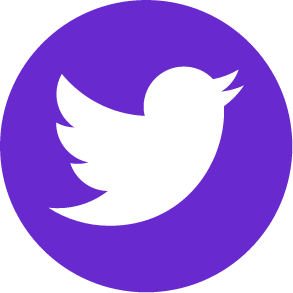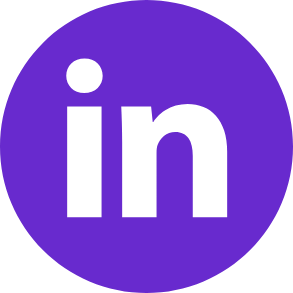Welcome to the first discussion in the new Embassy Conversation series! We are trying something new to help share information about various African countries.
African Ancestry.com, the pioneer of genetic ancestry tracing for Black people all around the world helping to reconnect people of the Diaspora with their ancestral roots using DNA. We are unique in that we are the only company that can give you the present day African country and ethnic group that you share ancestry with on a maternal branch of your family tree and or a paternal branch of your family tree.
We're very proud of our presence in the market and the impact that this work has had on over a million people who have used DNA to reconnect to specific places on the continent. As the only company that does not sell or share our customers' DNA, we want you to feel very secure that when you share your genetic information with us, the DNA is destroyed after we determine a result.
Dr. Gina:
Our guest tonight is Ambassador Noël Nelson Messone. He represents the Republic of Gabon, which is a country in Central West Africa. Gabon borders the country of Cameroon to the south. For those of you who share Cameroonian ancestry, he represents your neighbors in the country of Gabon.
Ambassador Noël Messone:
Thank you for the question. The easy answer, the most basic answer is that an embassy is responsible for managing bilateral relations between a country and the United States of America. In this case, as the ambassador of Gabon, I am responsible for managing here in Washington, the relationships between Gabon and the United States of America.
Now, bilateral relations between two country encompasses many things. It has to do with common interest in various areas including security, commerce, economics, investment, but also what we call consular relations, meaning how Gabonese nationals are treated in the U.S. and how U.S. nationals are treated in Gabon.
Another aspect is people-to-people relations. In that case, we are in contact with various organizations in the U.S., civil society organizations, think tanks, and other types of organizations. For us, an African country, the relations with the African Diaspora, and for me, the African Diaspora is the wider group of people including Afro-descendants and Africans who have recently become American citizens. There's a wider African diaspora in the United States of America.
Then we have other aspects such as cultural relations, for example, managing student exchanges between the two countries. In a nutshell, that's really what an embassy does.
Most people are familiar with the role of embassy in delivering travel visas. When you travel to a country, you go to an embassy to get a travel visa. That's one of the functions that most people are familiar with pertaining to a foreign embassy.
They're also familiar with the need for basic information about the country, about the conditions in the country, about all kinds of health advisory information when you travel to a country. You can also find travel information about hotels and tourism by talking to people at an embassy. That's what an embassy does.
Dr. Gina:
There's a lot going on at the Embassy of Gabon! You mentioned a lot of things, and the closest to our hearts of course, is your perspective on African-Americans, Africans from the Caribbean and the Sixth Region of the African Union reconnecting to their ancestry through DNA.
What did you think when you heard about this? What was your initial thought when you heard that this was possible and how did you find out about it?
Ambassador Noël Messone:
Let me do a little bit of history. There are two important facts about the U.S. and Gabon. The initial contacts between Americans and Gabon go as far back as the 1840s. That's when young American Presbyterians from Boston, were sent off to the coast, the Atlantic coast of Africa, to establish Christian missions. Some of these young missionaries arrived in Gabon and they created the first ever Christian mission in Gabon. That mission still exists today. Some of these young missionaries died in Gabon for various reasons, and they're actually buried at the mission cemetery.
The second fact is Libreville, the capital city of Gabon. Libreville in English means "free town". Why free town? Because, when slavery was abolished, some free slaves were released on the coast of Gabon, and that's how Libreville was created.
There is a small island off the coast of Libreville, Pointe Denis. There are actually remnants of one of these ships that sank in Gabon when these slaves were released.
We were very honored about two, three years ago when Samuel L. Jackson did his DNA search and traced his ancestry down to Gabon, visited Gabon and was able to actually pinpoint his ancestry to a group of people called the Benga people around the capital city by the ocean.
Dr. Gina:
We did that!
Ambassador Noël Messone:
Right! Recently, two people, they actually released a video of their trip to Gabon, Kevin and Mara. Kevin is a retired IT engineer in Colorado, and his sister Mara is a professor at the University of Colorado. They just recently traveled to Gabon and did a very interesting trip to Gabon and they just released a video of their experience in Libreville.
We are quite excited and quite grateful of the work that you do that allows us to welcome people such as Kevin and Mara, as we did with Samuel L. Jackson. We hope to do more.
Dr. Gina:
Yes! And I know people like Denise Stokes who's watching, we traced her ancestry to Gabon. She's quite excited to be here, and we are often asked by people, "When are you going to do a trip to Gabon?" We have what we call African Ancestry Family Reunions in which we curate trips home to different African countries.
We are gearing up for our December trip. Our December trip to Cameroon is December 1st through the 14th of this year, and then we've added Nigeria for January of 2025.
We are looking forward to working with you and Dr. Moore and Mr. Biteghe on how we can collaborate to bring the Gabonese descendants home to Gabon.
Darnell Clayton in the chat is asking, "Will Gabon offer citizenship again like they did with Samuel L. Jackson?"
Ambassador Noël Messone
We are formalizing it. Samuel Jackson was the very first to visit, and when he visited, he was made a citizen. I am now proposing to the Foreign Ministry that we actually formalize that for future Gabonese descendants who want to become citizens. That's one thing I am working on.
The second matter that I'm working on is actually for the government to find a way to facilitate access to land for Afro-descendants who might want to establish themselves in Gabon. So that's another aspect of it that I am bringing to the attention of the Gabonese authorities.
Dr. Gina:
Well, I know there are many people, somewhere between 3% and 6% of our results come back from Gabon. So that's quite a number of people who would be potentially interested in taking advantage of these opportunities to connect tangibly with Gabon.
And what we find Ambassador, is that people don't just want to go visit. They want to go and they want to engage.
People have invested in the countries that we've visited already. There are people who have rented apartments. There are people who have revisited multiple times, and so the African Ancestry community takes this very seriously. It's not something that's just nice to know or nice to do, but something that they feel, that they believe is an integral part of who they are, and they want to embrace that and engage with that.
Ambassador Noël Messone:
I was traveling recently to Nebraska and I was in the hotel lobby about to leave, and a gentleman came to me asked, "Where are you from?" And I said, well, we are from Gabon. And he just went excited and he said, "Wow, I'm going to call my wife because I just did my search. I am from Gabon and I am from the Kwele." The Kwele are part of my the country. So that was such an exciting moment for him, and he said,"Really, I can't believe it that I'm meeting people from Gabon."
Dr. Gina:
You're a celebrity in these African Ancestry streets, as we would say, Ambassador!
Ambassador Noël Messone:
Right! In fact, I would like to sometime in the future for those who might want to participate, to host a meeting at the embassy so we can have a conversation and just get to know each other and they can ask questions about Gabon. We could have the conversation around some of the issues that you just mentioned.
Dr. Gina:
That would be great! I know from my brief conversation that I had with you, you are extremely knowledgeable about history. I mean, you just took us back to the 1840s with Gabonese, and you told me about the civil rights leaders who traveled to Gabon in the '70s, right?
Ambassador Noël Messone:
Yes, the '70s! The second African-American Africa summit was held in Gabon. The first one was held in the Ivory Coast, and the second one was held in Gabon, and you had everybody there. You had Reverend Jesse Jackson, Randall Robinson, even Reverend Louis Farrakhan was there. Everybody was there at that summit.
Dr. Gina:
We can't give it all away, Ambassador, they got to come come to the meeting to get the rest of the info.
But speaking of coming to the meeting, I believe that you got quite a bit of good response from African Ancestry Family members who are planning to attend the National Day celebration on Saturday. Can you tell us a little bit about that celebration?
Ambassador Noël Messone:
That is August 17th, which is the day that Gabon became independent from France, and that became the National Day. It is usually celebrated back home and every place where Gabon has embassies. This year I particularly wanted to also bring in the African Diaspora, meaning all the Gabonese who are now Americans and all the Afro-descendants who have traced their ancestry to Gabon. I wanted to celebrate that also by inviting all of them, any of them who could make it to the celebration on Saturday. That was the intent, and for me, it was important to actually do it.
Dr. Gina:
Well, it is the hot ticket in the African Ancestry community. People have been talking about it and looking forward to it. I'm sure you'll get a lot of questions about citizenship, so hopefully we'll send this out so that they can hear it from you online so they won't keep bombarding you with the same questions.
Ambassador Noël Messone:
A funny thing happened to me. One person received a message, the invitation, and they thought it was some kind of a scam, and they replied back to me saying, "Well, is it real or is it fake?". So I called the person and I said, no, I'm the Ambassador. I'm calling you because I received your message. It's real. It's true. You are invited and so forth. And she couldn't believe it.
Dr. Gina:
I love it! Well, I just wanted to close out with your Gabon Top Five. What are the top five things that you think people need to know about Gabon?
Ambassador Noël Messone:
First thing is people often think of Africa from the lenses of a certain media that depicts Africa only through the lenses of conflict and strife. I would say one first thing to know is Gabon is a peaceful country. We never went through a civil war. We've had our political tensions, just like any country in the world when elections happen, but we've never had a civil war. So that's very important to know that we are one of the peaceful countries in Africa.
Second thing, Gabon is a potentially rich country. Why? Because God blessed Gabon with various natural resources, oil, gas, minerals, vast lands of timber, and being a coastal country, Gabon has some of the best tuna in the world is fished on the coast of Gabon. That's why you have all this illegal fishing off the coast of Gabon because they want to come and fish some of the best tuna in the world.
The third thing you need to know about Gabon is the very diverse culture. You have many local languages, making for a very diverse culture. Speaking of culture, some of Gabonese traditional masks have been traded up to 5 million a piece on the arts markets around the world. A vibrant culture that is not always well known, but it's a very vibrant and very rich culture.
Most importantly, the people of Gabon. It's a small country by population, so everybody knows everybody sort of because, we're only 2 million people. There's a certain warmness about Gabonese people. Hospitality, that's what also characterizes Gabon. So it's a country of great potential for the future.
Well, I certainly hope that African Ancestry family members can play a role in the development of the future for Gabon. We're a very important resource for you for the country, and that's one of our goals when we set out to do this work, to help give people a foundation for how they can help grow the economies, whatever it is that the countries need. We have a set of wealth, and resources as Americans, as Black Americans that we can contribute to our homelands.
Ambassador Noël Messone:
I was telling you about this landmark where this ship landed with free slaves off the cost of Gabon. I was brainstorming about that today and I thought it might be a good idea where we could mobilize everybody to build something symbolic that would be a place of pilgrimage when people travel to Gabon so that they know that this is where slaves were released when slavery was abolished.
Dr. Gina:
I love that idea. I'm excited about this conversation. I'm excited about your level of support and interest in African Ancestry and the people of the diaspora who are connected, not just who are connected to Gabon, but particularly them. I know Denise Stokes, she's in the chat. She's excited about coming to the National Day celebration and meeting you, as are many of the others who will attend.
I want to thank you so much for spending 30 minutes with us across all of our platforms and giving us those top five. You've set the bar now for these embassy conversations, ambassador. Again, I just would like to thank you honestly and authentically for joining us.
This is a transcription of the conversation between Dr.Gina & Ambassador Noël Nelson Messone of Gabon.




